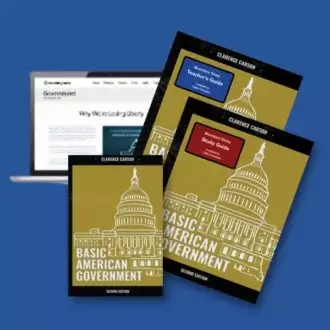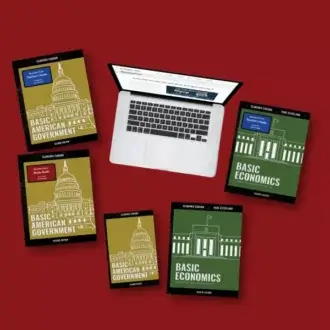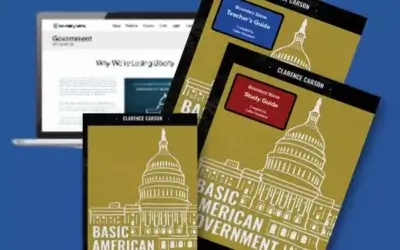Even If the Worst Happens
Tuesday, May 24, 2022, terror tore apart the heart of America as an eighteen-year-old shooter walked into Robb Elementary School in Uvalde, TX and shot and killed twenty fourth grade students and two teachers. The night before it occurred, I had gone to the ER and ended up spending the rest of the week in the hospital. I watched all the news updates and changing stories as they developed over the days I was there. Without a whole lot else to occupy my time, I watched a lot of the news coverage as so many hurting people asked the most obvious question we all have in such situations, “Why?”
Death is one thing we all have in common, but death takes a multitude of forms. It may come quickly and catch us by surprise, as with the school children’s deaths in Uvalde. Or we might watch loved ones die slow, “natural” deaths over years as they day by day lose physical, mental, or emotional function and abilities that we all take for granted. It seems somewhat strange to call it “natural” as we see a sort of “living death” as even basic daily activities become impossible, maybe for many years in some cases.
Death may come into our lives as loss of a loved one while still in the womb or after 100 years of life, but death is not the only loss we grieve. There are innumerable other types of loss. It may be loss of limbs or other physical function, loss of precious memories or other mental or emotional abilities, or loss of the familiar by a sudden move or family breakup, or oh, so many other types of loss. In all these losses, we grieve, and while there are similarities among different griefs, each person’s experience is unique. Even when there are similarities, no one can tell someone else the absolute right or wrong way to grieve.
American View of Grief
Americans, in a uniquely American way, try to sanitize grief and act as if it can all be wrapped up in the week or so between a death and the public funeral if we are just thinking correctly about it. Good theology can be a big help in understanding matters related to death. But that day, months later, that I find myself in a crumpled ball of mess and tears on the floor of my living room may happen even if I have impeccable theology. It may not be because I have poor theology. It may just be because I am grieving the loss of someone I love, or the loss of some part of my life that was part of who I once was but no longer am. Death and such loss were not part of the original creation, and they will always feel unnatural. Tears in such situations are normal and important. Even Jesus wept when his friend died, even though He knew Lazarus would soon be raised from the dead.
In my first experience of walking through grief with someone, a friend recommended Edith Schaeffer’s book, Affliction. That first time I read it, I related much of it to my friend’s story. But as happens in life, affliction came into my life many more times over the years. I often went back to the well of wisdom in that book and let Edith Schaeffer, as a woman further down the road than I, spiritually mother me. The first chapter was titled with that big question, “Why, Why, Why?” In it she describes the book as “an attempt to look at the biblical explanations for the existence of affliction . . . .” She gives us some hopeful perspective in the following analogy:
There is an inner excitement in the midst of stringency and hardship as a gymnast is preparing for the Olympics. Similarly, affliction—with the goal ahead, understood, and vividly in sight—is a different thing from the blind, dogged suffering of prisoners in a chain gang, being whipped, with no hope of anything beyond the present ugliness.
Allowing God to give us the ability to see even a bit of His perspective on our afflictions gives us some hope in the midst of otherwise hopeless situations. Hope does not eliminate grief, but it does change it. Keeping the end of the story in mind in the midst of life’s difficult circumstances enables us to continue to trust as we cling to the Author of our story.
Even If . . . The Fiery Furnace
In Scripture, there is not one large exposition of all the principles we need in order to have a proper perspective, but there are several passages that give us glimpses of the truth we need. The story of Shadrach, Meshach, and Abednego is one of those. The king threatens to throw them in the furnace if they do not bow down to his gods. They respond:
Shadrach, Meshach, and Abed-nego answered and said to the king, “O Nebuchadnezzar, we do not need to give you an answer concerning this. If it be so, our God whom we serve is able to deliver us from the furnace of blazing fire; and He will deliver us out of your hand, O king. But even if He does not, let it be known to you, O king, that we are not going to serve your gods or worship the golden image that you have set up.” —Daniel 3:16-18 (NAS)
In their response to the king, we see their confidence in their God who gives them courage when facing the furnace. They know God’s character is always good. They know He is able to miraculously intervene and save them from the fiery furnace. But even if He does not, they know that when they are before Him, and they understand the rest of the story that is hidden now, His goodness and lovingkindness ordain that it will all be sufficient. At that time, it will not even occur to His children to ask a question that begins with, “God, wouldn’t it have been better if . . .” no matter how impossible that seems right now.
Chances are, we will not face the prospect of a fiery furnace for the refusal to bend our knee in worship of the king’s idols. But afflictions come our way in many forms. We are constantly bombarded with the prospect of unbearably difficult circumstances. What if it had been my child in the Uvalde classroom? What if my son had been the shooter? What if the diagnosis comes back as cancer? Or Alzheimer’s? Or Cystic Fibrosis? Or _______ (fill in the blank). What if I miscarry? What if my daughter aborts her baby? What if we never see the child we adopted have even the smallest victory over their past trauma and attachment disorder? What if I get Covid and pass it to my mother? The “what if” questions seem endless sometimes.
Vaneetha Risner, in her book, Walking Through Fire, explains how asking such questions is the wrong approach to the difficulties the future might hold:
Many spend their lives worrying, endlessly asking, what if the worst happens? That question only breeds fear. Rather than asking unanswerable questions, we should turn our doubts into declarations. Even if the worst happens, God will not change. God’s grace will be sufficient. God will carry us. And he will never leave us.
To put it concisely, we need to change our “what if . . .” questions into “even if . . .” declarations.
When God’s Answer is “Wait” or “No”
When God’s answer to our prayers is “wait” or “no,” our response is still important. We should continue to pray for the miraculous answer, which still could come in the future. But if it doesn’t come, it does not necessarily mean we didn’t have enough faith, or that there was some sin in our life (John 9). We can have confidence in the Lord that He is able to step in and change our circumstance at any time. But there is an unshakable peace that overtakes us once we acknowledge that we still have victory even if He does not step in with the miracle we pray for. Even when the prospects for our future are continued health decline, or years of dealing with some other affliction where there is no relief this side of heaven, we can still be confident that His lovingkindness will not fail. He will continue to give us grace, and His presence will always be with us as He continues to walk through it with us. We will never handle it all perfectly, and there will be those days of deep and very real grief, but we can know He is always with us, even in all of our failures.
You may say, “But I cannot imagine facing the things I have seen others go through. God hasn’t given me the grace to do that.” That is very true. God never gives us grace now to face the things that others are facing, or that will come our way in the future. He gives us sufficient grace for what we will face today as we face it. (Matthew 6:31–34, 2 Corinthians 12:9) That doesn’t mean it won’t still be hard.
Running a Small Country on the Side
At an earlier point in my life, at a time when I was busy raising two small children, friends would joke that I could probably run a small country on the side. Believe me I tried. When my kids were two and four, I was the volunteer coordinator of our fairly large church’s Women’s Ministry. We were in the middle of completely reorganizing it when I was diagnosed with Multiple Sclerosis. Doctors called it “benign,” and for a few years I proceeded as usual for me.
But now, more than twenty-five years later, it has advanced to where I am considered tri-paretic—three limbs are for the most part paralyzed. I know intimately from experience what it is like to get bogged down in the day-to-day tedium of life with a chronic degenerative disease where almost every day I am a little weaker than the day before. I often wonder how I am going to accomplish even basic daily tasks. How will I deal with what life is going to be like in six more months when I can’t do ___________? Can I even face asking one more person for help one more time? How much detail about my struggles should I share with this or that friend?
Every step along the handicap accommodations path has been an example of seeing God’s sufficient grace carry me through. When I was in my “running a small country on the side” stage of life, I was one of several women’s bible study group leaders in our church. One of our older and wiser group leaders had a woman in her group with MS who walked with a cane, and she tried to connect us. I was hesitant and didn’t realize until later that it was because I didn’t want to think of a cane in my future.
For the most part, every step along the way over these twenty-five years: handicap parking permit, cane, wheelie-walker, power chair, lift to put that chair in the back of our minivan, more advanced power chair, giving up driving, van with a ramp so it could transport me in that new chair, lift to get me in the shower . . . were all steps I didn’t feel I could face. Every step along the way, the answers got more expensive, and I didn’t want to think of myself as having to need that. Every time, after God provided the way, I wished I hadn’t fought it so hard because it really was a blessing. Every time some things got harder, but other things were better, at least for a while. Until it was time for grace for another step.
Things That are Unseen
We tend to focus on the “things that are seen.” We hear about a tragic situation, and we want to know all the details. Without realizing, we are often looking for details that might reveal that their story is not going to happen to us because our circumstances are different in some way. Or we get so bogged down in the truly tragic realities of a real situation that we cannot see beyond it. In either case, we are focusing on the “seen.”
But there are greater unseen truths that we miss if we do not peer deeply into God’s revealed truth in His Word. There are many places in Scripture that inform us of various aspects of God’s perspective on affliction that we miss as we focus on the things we can see. Such as where Paul says:
So we do not lose heart. Though our outer self is wasting away, our inner self is being renewed day by day. For this light momentary affliction is preparing for us an eternal weight of glory beyond all comparison, as we look not to the things that are seen but to the things that are unseen. For the things that are seen are transient, but the things that are unseen are eternal. —2 Corinthians 4:16‑18 (ESV)
Paul was no stranger to afflictions (2 Corinthians 11:22-31). In the passage above, he calls our afflictions light and momentary when what we experience or see in others we would never describe with those words as we focus on the “seen.” However, what he is saying is that when those afflictions are compared with the glory they prepare for us, which is eternal (contrasted with momentary), and weighty (contrasted with light), we can see how anything in this life is, in reality, brief and light. Eternal is incomprehensible, but we can understand that our lifetime is a mere blip in comparison.
A Glimpse of the Battle
The story of Job pulls back the curtain on the spiritual realm enough for us to see there is an ongoing battle between God and Satan. God’s love for Job is never in question, but amazingly, we see in the opening chapters of the story, God points him out to Satan as someone who walks righteously. Satan accuses Job, saying he is only walking uprightly because God has so richly blessed him. God knows better. He allows Satan to attack and take away anything and everything around Job. His friends give him bad advice that seems to justify unfaithful behavior, but Job continues to be faithful.
Edith Schaeffer uses an illustration to explain this battle in the heavenlies and what it means for the significance of what God is doing as He carries us through even the most unimaginable trials. She shares how she used this illustration to help a man who was only days from dying of cancer. He had been a person who could have run a small country on the side. He was leaving his wife with several young children. She wanted him to know he still had something very important to do by walking in God’s grace all the way to the end.
She used two rectangles to illustrate two museums there could be in heaven that combined would show the total defeat of Satan. Above the two rectangles are two dots, one large dot representing God, and a small one representing Satan, who stands accusing all the people who end up in these museums.
Every believer will be in both museums during different points of their lives. I call one the “He is Able” museum. It will contain people in all kinds of afflictions, persecutions, tribulations, crises, disappointments, doubts, worries, etc. These people will have cried out to the Lord in prayer. In every case in this museum, God will have stepped into space and time and miraculously intervened to change the circumstances and demonstrate His power to overcome and defeat every scheme of Satan, every possible affliction that ever troubled His children.
The other museum will contain different people in unique but similar circumstances, all the same kinds of afflictions, persecutions, tribulations, crises, disappointments, doubts, worries, etc. I call this the “Even If” museum. These people will have also cried out to the Lord in prayer, but in these cases, the answer will have been “wait” or “no.” He did not love these people any less. Along with the “wait” or “no” came the day-to-day sufficient grace to trust and walk with Him through the difficult circumstance. Satan stood there and accused each person, that he or she would doubt and abandon the Lord. But God empowered each one to withstand the attack and trust Him through every scheme Satan could possibly throw at them. He carried them through.
I would add a third museum there could be in heaven. This is the “Redemption” museum. Every one of us will have plenty of times we fail. Even though God is faithful to empower us to do so, no one will always, in every situation act in ways that would be represented in one of the first two museums. Sometimes we fail much more than we succeed. Maybe we failed to even pray or acknowledge God at all in our suffering situation. But somehow, I believe that even our failures will help to show the defeat of Satan as the sufficiency of Christ’s death redeems even our greatest failures in ways we cannot see this side of eternity. This museum would have representations of all the failures believers have had. We won’t necessarily need to know who the people were, but we are all there, too. His total defeat of sin blots it all out, so we might not see the horror of our sins. But Jesus’ victory over them will be known and obvious to all. In this museum God redeemed our failures. He paid all penalties and redeemed everything by restoring “what the locusts have eaten” (Joel 2:25) in ways we may never have been able to see while on earth. It’s a kind of “the rest of the story,” where stories of failure and defeat are shown to be, in reality, victories.
We will all be there in each of these museums. Combined, they will be the rock-solid case that proves the total defeat of Satan along with all his schemes and accusations.
Like the Olympian going through grueling training keeping the goal in mind, when we keep the unseen battle in the heavenlies in mind, we can face the day-to-day struggles of walking through the “even if” kind of affliction with hope. We may not know all the details of what is occurring in the unseen world, but from the glimpses God has given us in Scripture, we can be assured that our responses have eternal consequences. He will overcome in every situation by either changing our circumstances or by giving us the grace to trust Him as He walks through the fire with us.







Cathe,
Thank you for sharing and being vulnerable! It gives me great encourage as I see you and Paul walk in your lives to not only endure but to shine the light of Christ to others as He says “wait” or “no” to me in my circumstances.
Leslie
Cathe, this really spoke to me as I recently recognized the grief I am experiencing due to a broken relationship, the hope I have for reconciliation but trusting God even if my prayers are not answered in the way I desire. God Bless.